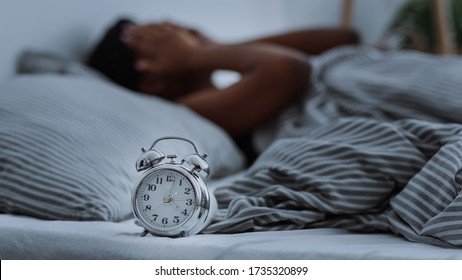Sleep apnea is a common yet potentially dangerous condition that affects millions of people worldwide. If you suspect you have sleep apnea or have been referred to a sleep apnea specialist, it’s normal to feel a bit uncertain about what to expect during your visit. Understanding the process can help ease any anxieties and ensure that you are prepared for what lies ahead.
When you visit a sleep apnea specialist, whether it’s your first appointment or a follow-up, the experience is generally a thorough yet compassionate process. Sleep apnea doctors are experts in diagnosing and managing the condition, and their goal is to ensure you get the most effective treatment based on your individual needs. Whether you’re dealing with obstructive sleep apnea (OSA) or central sleep apnea, knowing what to expect can help you feel more at ease during your visit.
Initial Consultation: A Comprehensive Evaluation
Your initial visit to a sleep apnea specialist will typically begin with a detailed discussion about your symptoms, medical history, and lifestyle. You might be asked to fill out a questionnaire that highlights factors like snoring, daytime fatigue, and any possible irregularities in your sleep patterns. The specialist will also inquire about your general health, as conditions like obesity, high blood pressure, or diabetes can increase your risk for sleep apnea.
The doctor will want to know if you experience symptoms such as loud snoring, choking, or gasping for air during sleep. These signs are often indicative of obstructive sleep apnea, the most common type of sleep apnea. However, central sleep apnea or complex sleep apnea may also require different treatments. Your sleep apnea doctor will use the information you provide to help determine whether further tests are necessary, such as a sleep study or a home sleep test.
Sleep Studies: Diagnosing the Condition
To diagnose sleep apnea with precision, the sleep apnea specialist may recommend a sleep study. This is an essential step in understanding the severity of the condition and confirming the diagnosis. There are two types of sleep studies: in-lab polysomnography and home sleep testing.
In-lab polysomnography involves spending the night at a sleep center, where various sensors are attached to monitor your brain waves, heart rate, breathing patterns, and oxygen levels while you sleep. This method is highly accurate and is typically recommended if the diagnosis is unclear or if there are concerns about other sleep disorders. Alternatively, home sleep testing allows you to monitor your own sleep environment, though it may not capture the same comprehensive data.
Once your sleep study results are in, the sleep apnea doctor will assess the data to determine the presence and severity of sleep apnea. If sleep apnea is confirmed, the doctor will discuss various treatment options.
Treatment Options: Nasal Masks, CPAP, and Beyond
For many people with sleep apnea, the go-to treatment is the use of Continuous Positive Airway Pressure (CPAP) therapy. This device uses a machine that delivers a steady flow of air through a nasal mask or nasal pillows, keeping your airway open while you sleep. The use of nasal masks in CPAP therapy is common because they are comfortable, easy to wear, and effective in preventing airway collapse.
There are different types of CPAP devices available, and the specialist will help you find the one that best suits your needs. The nasal mask is the most common interface, covering the nose, though other options like nasal pillows or full-face masks may be recommended depending on your comfort preferences or specific needs. The sleep apnea doctor will also ensure that the pressure settings on the machine are adjusted properly for optimal results.
If CPAP therapy isn’t suitable for you or if you have severe cases of sleep apnea, other treatment options may be considered. These might include BiPAP (Bi-level Positive Airway Pressure) machines, which adjust pressure with each breath, or an APAP (Auto-titrating Positive Airway Pressure) device, which adjusts the pressure automatically throughout the night. Some patients may also benefit from dental appliances designed to reposition the jaw and tongue, reducing airway obstruction.
Behavioral and Lifestyle Adjustments
In addition to medical treatments, your sleep apnea doctor may recommend lifestyle changes that can improve the condition. Maintaining a healthy weight, avoiding alcohol and sedatives before bedtime, and quitting smoking are all crucial in managing sleep apnea. Your specialist may also suggest sleeping on your side rather than your back to reduce airway obstruction.
If your sleep apnea is related to nasal congestion, the doctor might recommend using a saline nasal spray or decongestants before bedtime. For those with more severe forms of sleep apnea, surgery may be necessary to remove excess tissue or reposition the jaw.
Monitoring Progress and Adjustments
After starting treatment, especially if you’re using a CPAP machine or nasal mask, regular follow-up visits with your sleep apnea doctor are essential. These visits ensure that the therapy is effective and comfortable. The doctor may adjust the pressure settings on your CPAP machine or suggest different equipment if necessary.
The specialist will also assess your sleep quality and check if you’re still experiencing symptoms like daytime fatigue or difficulty concentrating. Sometimes, additional tests or adjustments may be required to refine your treatment plan.
Conclusion: A Personalized Approach to Sleep Apnea
Visiting a sleep apnea specialist offers an opportunity to get a clear diagnosis and an individualized treatment plan that can significantly improve your quality of life. With proper care, most patients experience better sleep and greater overall well-being. If you’re concerned about sleep apnea, seeking the expertise of a sleep apnea doctor is a step toward better sleep and improved health.
By addressing your symptoms with the help of a knowledgeable specialist, using effective treatments like nasal masks or CPAP therapy, and making lifestyle changes, you can take control of your sleep apnea and enjoy more restful nights.





